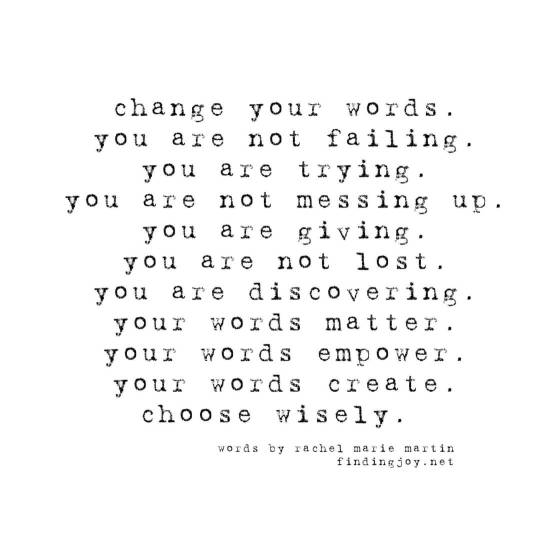#Words Matter
Explore tagged Tumblr posts
Text
I understand that embracing the term evil can be freeing as it allows people to recognize the parts of themselves they feel are antisocial and selfish by indirectly addressing it with humor. It is also a playful way to reclaim the word after it has been used against women who campaign for themselves or treat men the way men treat women. However, my dad is actually evil, and I don't think people realize what they are aligning themselves with when they say they're evil. I think it's more revolutionary to find the exact term and use it. It gives more nuance to our language and to ourselves to be ignoble, opportunistic, or bankrupt.

#words matter#words of wisdom#food for thought#daddy issues#do better#be better#a little evil is okay#vocabulary#english language
615 notes
·
View notes
Text
Some notes on the name Palestine
TL;DR: Palestine is a colonialist name from a group trying to deny an indigenous group's indigenousness as part of a genocidal campaign. It may have acquired other meanings, but the etymology is still linked tightly to that, and it still carries that past with it. Anyone who considers themselves pro-indigenous should not use the term.
Let's rewind. The word Palestine is related to "Philistine"; indeed, it comes from them. So who were they?
In short, a bunch of Greeks who created a syncretic culture in what is now, roughly, Gaza. They mixed with the native people, called Canaanites. (We don't know what they called themselves - Philistine itself derives from a Biblical term.)
They vanished pretty fast, and then, a while later, the Romans came.
The indigenous population rebelled too much, so they embarked on a campaign of genocide. They killed people, of course. But they also raped enough women that Judaism is matrilineal. They sold people as slaves, barred them from their holy city and capital, Jerusalem (which they renamed). They destroyed the Jewish holy temple, the Second Temple (there is now a mosque on top of it).
And then they tried to deny that the indigenous population was, in fact, indigenous. They renamed the region Syria Palestina. Why? Because Philistines weren't around anymore. They could pretend there weren't any indigenous people to displace.
Over time, that word, Palestina, moved. It moved to Arabic, where it became Filastin. It moved to English, where it became Palestine.
But the indigenous name for the region (except, arguably, for Gaza, give or take) has never been Palestine.
We don't know what the Neanderthals, the first group there, called it.
But we know what many of the indigenous people call it. Eretz Yisrael. Or, in English, the Land of Israel.
("But wait!" you say. "You just said that in Arabic it was Filastin. Palestinians are native and speak Arabic!"
But they didn't speak Arabic back then. Arabic came with the Arab conquerers (who Palestinians aren't super related to, FYI). Arabs spread vastly during the Islamic conquests, but before that, they were primarily a desert people, whose homeland corresponded to roughly Saudi Arabia, although it extended to places like Syria and Oman. There are majority-Arab countries and places today that range from Morocco to Mauritania, Sudan to Iraq, Egypt to (parts of) Iran. Arabs are not indigenous to any of those places, and neither is Arabic.)
You may not support the Roman genocide. I hope you don't. But you are still using a term European colonialists used to erase indigenous identity as they genocided them, and it still carries that baggage.
(If you refuse to call the region Israel, Canaan is also a fine term - although it may get you some weird looks.)
#the official languages of canaan are french and english#but in the province of nunavut inuit is the most spoken language#jumblr#jewblr#jewish#judaism#jewish tumblr#israel#fuck the romans#people still believe their propaganda 2000 fucking years later#2000 FUCKING YEARS#...anyway#palestine#indigenous#genocide#terminology#terminology matters#words matter#canaan#(not to be confused with canada as tumblr's autorecommendation suggests)#like seriously don't confuse it with canada
301 notes
·
View notes
Text
On Snowflakes... "Yes I've heard this word. I think sociopaths use it in an attempt to discredit the notion of empathy." John Cleese.
#quote of the day#quote of today#john cleese#snowflakes#words#words matter#not just words#words of wisdom#sociopaths#feelings#notions#ideas#truths#care#common sense#empathy#kindness#sympathy#people#people helping people
216 notes
·
View notes
Text
So one of my players looks at me. Like. Second session I ever played with them. Just narrows his lil eyes and stares me down and ejaculates, "Why do you talk like that?"
For context: I generally speak with actual words from my mouth exactly the way I type words to make posts on tumblr. If we've known each other for any length of time, you may already understand a bit of why he asked me this. Evidently, I speak in a way that is easily understood, most of the time, but approaches sentence structure the way English countrysides approach roads- in a winding and roundabout fashion.
I didn't say anything witty, but I did say, "Because words are beautiful and I love them. Why don't you [talk like this]?"
Anyway, he had a crush on me. And I think the point of the story is to talk like you're in the process of making deep, sensual, tantric love to the language in which you're communicating. 😎
252 notes
·
View notes
Text

Take me where the forest meets the ocean
In her mind, she could almost see him. A figure in the shadows, watching her with quiet, steady eyes. There was something about him that felt safe, yet dangerous all at once. Not the kind of danger that would hurt her, but the kind that came from carrying his own pain, his own battles. His presence felt like a warm fire on a cold night—comforting, but with a power she couldn’t ignore.
She imagined the way he’d hold her, not to keep her trapped but to remind her she wasn’t alone. He wouldn’t need grand words or promises; his actions would speak for him. A warm hand on hers, a hug that lasted just long enough to chase the shadows away. Even in silence, she would feel it: “I’m here. I see you.”
But she couldn’t ignore the darkness in him, either. It wasn’t cruel or selfish—it was the kind of darkness that came from surviving hard things, the same kind she carried in herself. It scared her a little, but it also made her feel less alone.

#writing#creative writing#writers on tumblr#original writing#short story#prose#fiction writing#writing community#angst#romantic prose#soft angst#comfort and pain#bittersweet#dark romance#emotional writing#yearning#forest meets the ocean#melancholy aesthetic#moody writing#atmospheric prose#shadow and light#ethereal#haunting beauty#dreamlike#damaged but healing#tender intimacy#protective love#tumblr fiction#storytelling#words matter
114 notes
·
View notes
Text
On Kindness and Humanity "Be the change that you wish to see in the world." – Mahatma Gandhi "No act of kindness, no matter how small, is ever wasted." – Aesop "People will forget what you said, people will forget what you did, but people will never forget how you made them feel." – Maya Angelou "In a world where you can be anything, be kind."
#motivation#quotes#poetry#literature#relationship quotes#writing#original#words#love#relationship#thoughts#lit#prose#spilled ink#inspiring quotes#life quotes#quoteoftheday#love quotes#poem#aesthetic#kindness#humanity#be kind#words matter
37 notes
·
View notes
Text

#medical ableism#ableism in medicine#ableism#words matter#language and ableism#healthcare workers being ableist
85 notes
·
View notes
Note
your work takes my breath away always.
thank you for writing these very real stories. im a black lesbian in a very red state (US ofc) and i just want you to know that your stories touch me so deeply.
you capture such real emotions and such real stories. i cry for your characters the way i cry for my family even further south.
art is so important, stories are so important.
thank you for writing, thank you for creating.
and thank you for feeling.
I can’t even word right now, that’s how much this touched me. Because I’m crying even trying to imagine your situation, and how grateful I am that you shared with me. Because as much as I push for hope and positivity, it is all so very hard right now.
But if my writing eased that at least a little, you are so very welcome. Stories and art are so important, you’re right, especially now. Small acts are significant. Words matter. People matter.
Your kind words are so very appreciated. Thank YOU, too. And stay safe, friend. ❤️
37 notes
·
View notes
Text
In some era
I hope you and I abound
At the same time
In abundance, in yearning
In satisfaction and in love
In some era
I hope we are a match
Which resembles the heavens above.
In some era
I hope I learn
To shed my fears and overcome my tears
And you learn that there is no shame
In feeling aflame
For someone who no one has ever desired.
Sometimes time transpires
The unlikeliest of events
And so in the Halley's Comet of hope
I yearn for an era
In which you and I drink
Vials of love,
Even if it were a poisonous dose,
For I am willing to cease my breaths
For I know
That in some era
I will be so in love
That for him, I'll be bold enough
To embrace death.

©️ ilakiyaaa
#art#books#english literature#female poets#literature#poems on tumblr#poetry#prose#poets on tumblr#poetry and poems#poems and poetry#poetry and prose#my poetry#poetic#writers and poets#spilled words#spilled thoughts#spilled ink#spilled poetry#spilled writing#poetry and words#words#words words words#words matter#love poesia#love poetry#love poem#love#writing#writers on tumblr
27 notes
·
View notes
Text
I once did someone a favour and instead of saying thank you, they said
“May Allah ease things for you as you have eased things for me”
I hold this dua and the person so dear to my heart. 💗🌷
39 notes
·
View notes
Text

49 notes
·
View notes
Text
Death of the Dragonflies, Story Snippet
Fallon crouched low, her muscles coiled like springs, ready to bolt. Nestled in the tangled arms of the lilac bush, where bright, downy leaves fluttered in a dance, she eyed the makeshift starting line she had carved into the grass. The breeze whispered secrets, warm and thick, carrying hints of crushed grass and sunbaked earth. Clouds waltzed across the sky’s endless blue, as if drawn by an unseen hand. On her signal, the race of their lives would start.
A group of children gathered around Fallon. Their breaths held tight, and bodies coiled with a shared anticipation that hummed in the roots beneath them. Adults on the sidewalk murmured to themselves. Their disapproving tones clear indicators of their loss of joy and mischief.
The hill sloped before them, green and wild, sweeping down toward the group home’s backyard—a slope both untamed and inviting, daring them to test its heights and race its steep descent. For Fallon, the hill was a path woven with possibility, alive with the thrill of the chase that lay waiting just beyond the brush.
“Do you see Hank?” Fallon asked over her shoulder.
Half-hidden by the bush, Henry leaned forward, his tall, wiry frame catching the slant of afternoon light. He stood still, but there was a quiet readiness in the line of his shoulders, the kind of focus that made him appear a part of the landscape—he was alert, waiting for something just beyond the edge of sight.
His thumbs were tucked into his pockets, hands steady, relaxed—a contrast to the hungry look in his face, where sharp cheekbones cut the soft breeze. A tousled mop of dark hair fell over his brow, hiding the blue eyes that tracked every shift on the hill, sharp as flint.
Henry’s lips curved, a faint, crooked smile that flickered like a shadow in sunlight.
“I don’t see him,” he said, words rolling out low and quiet, no more than a breath. The smile lingered in his eyes for a heartbeat, then vanished like the flick of a barn mouse’s tail disappearing into the hay.
Fallon turned to the sea of bright eyes and restless limbs; a dozen little sparks held in place by thin string. “Alright, you know the rules,” Fallon said. “Fast and quick. Don’t let Hank catch you. First one down the hill, dry as a bone, wins.”
A thrill rippled through the group, spreading like lightning in a summer storm. Tiny hands gripped fists of grass, feet shuffled, and muffled giggles escaped like bubbles rising from a hidden spring.
The hillside hummed in answer, buzzing with their anticipation, each child a live wire, breath held, ready to release the energy coiled in their small, eager frames.
“On your mark,” Fallon whispered, knees hovering just above the earth. Her weight shifted to the edge of her toes, coiled and ready. Her fingers splayed, pressing deep into the cool dampness of soil, nails scraping the dirt, seeking a grip on something steady.
“Get set.”
Henry crouched low, muscles taut, tension coiled like a spring about to release. He pulled his hands from his pockets, expanding his fingers on the concrete sidewalk. His eyes locked forward, unwavering, tracing the path down the hill with a focus sharpened by silence.
A spark flared deep in her chest, fanning into a fierce thrill—a drive not just to win, but to give the kids a race that would burst open the quiet spaces of their small-town lives. She wanted them to feel it, that reckless, wild freedom that pulsed in her veins.
In a town like Stone Brook, excitement didn’t come served up but had to be dug out of dusty corners and hidden places. This was the sort of race they’d talk about later, voices breathless, eyes wide, reliving each heartbeat as if it were happening all over again.
The distant green door, chipped and faded, filled her sight—every scratch and flake of paint pulled her closer, the world narrowing until only the door remained—a singular, unwavering goal. Fallon’s muscles tightened, every part of her aligned toward that weathered frame at the end of the hill.
In the space between safety and recklessness, nothing else existed—not the laughter behind, nor the hum of leaves, just the door, steady and inviting, waiting for the burst of movement that would bridge the space between them.
“Go!”
#writing#writers on tumblr#amwriting#fantasy writing#fiction#writing community#storytelling#creative writing#character development#scene writing#prose#writing inspiration#writing tips#writing motivation#indie writer#writing blog#original fiction#writing aesthetic#writing challenge#narrative writing#short fiction#writing prompt#fictional characters#young adult fiction#bookish#literary prose#writers life#words matter#writing magic#writing vibes
9 notes
·
View notes
Text
Knowing My Worth
For a long time, I’ve known what I bring to the table in my relationships. I’ve always strived to be thoughtful, supportive, and consistent, whether it’s through small gestures of care or the grace I show during challenging moments. I know I’m the type of friend who listens deeply, communicates openly, and puts in the effort to nurture and grow connections.
Because of this, I hold myself to high standards, and I naturally expect the same from the people I let into my life. I don’t view these expectations as unreasonable, they’re a reflection of the value I place on healthy, balanced relationships. I’m not looking for perfection, but I am looking for reciprocity: mutual respect, effort, and a willingness to grow together.
Self-worth isn’t just about knowing what I deserve; it’s also about being able to identify when a relationship doesn’t align with my values. I’ve learned that it’s okay to ask for more when I’m bringing my best, and it’s okay to step away when I’m not getting what I need in return. It’s not about arrogance or being demanding; it’s about recognizing that my time, energy, and care are valuable, and they should be met with the same level of effort.
For me, self-worth is deeply tied to accountability. I’ve always believed that we’re responsible for the energy we bring to our relationships, and I hold myself accountable to be the kind of friends and people I’d want to have around me. That’s why I take time to reflect, choose my words thoughtfully, and prioritize fairness, even when it’s hard.
Ultimately, self-worth means knowing that I am enough as I am. It means standing firm in my values, even when it’s uncomfortable, and only welcoming relationships that respect those values into my life.
#self worth#knowing myself#personal#growth#self improvement#mindfulness#self care#healing#mental health#responsibility#healthy relationships#healthy boundaries#know your worth#confidence is key#empowered living#self love#mutual respect#reciprocity#communication#value yourself#uplifting#introspection#writing community#deep thoughts#words matter#writing
9 notes
·
View notes
Text

They
... They did what to HEARTSTEEL?
#heartsteel#league of legends#k'sante#ezreal#sett#yone#aphelios#kayn#words matter#choose your words carefully
100 notes
·
View notes
Text

I’ve been finding a lot of stoic wisdom along the way lately …
#mind over matter#books#books quotes#wise man once said#self worth quotes#stoic mindset#lone wolf#know your worth#words matter#how you speak to yourself matters
11 notes
·
View notes
